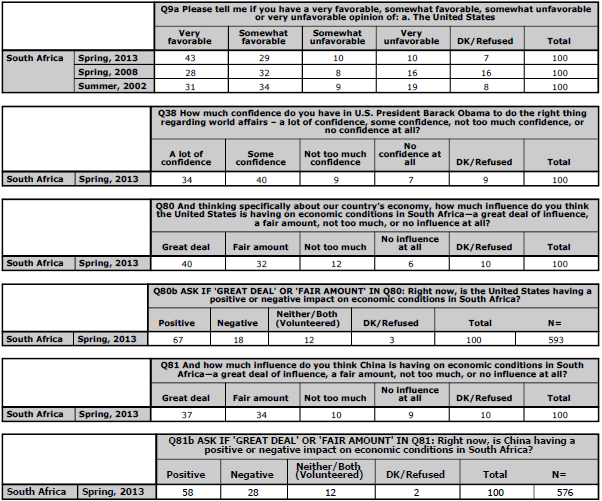Survey Topline
- Survey results are based on national samples.
- Due to rounding, percentages may not total 100%. The topline “total” columns show 100%, because they are based on unrounded numbers.
- Since 2007, the Global Attitudes Project has used an automated process to generate toplines. As a result, numbers may differ slightly from those published prior to 2007.
- Trends for certain years are omitted due to differences in sample design or population coverage. Omitted trends often reflect less representative samples than more recent surveys in the same countries. Trends that are omitted include South Africa in 2007.
- Not all questions included in the Spring 2013 survey are presented in this topline. Omitted questions have either been previously released or will be released in future reports.

Survey Methods
About the 2013 Spring Pew Global Attitudes Survey
Results for the survey are based on face-to-face interviews conducted under the direction of Princeton Survey Research Associates International. Survey results are based on national samples. For further details on sample designs, see below.
The descriptions below show the margin of sampling error based on all interviews conducted in that country. For results based on the full sample in a given country, one can say with 95% confidence that the error attributable to sampling and other random effects is plus or minus the margin of error. In addition to sampling error, one should bear in mind that question wording and practical difficulties in conducting surveys can introduce error or bias into the findings of opinion polls.



